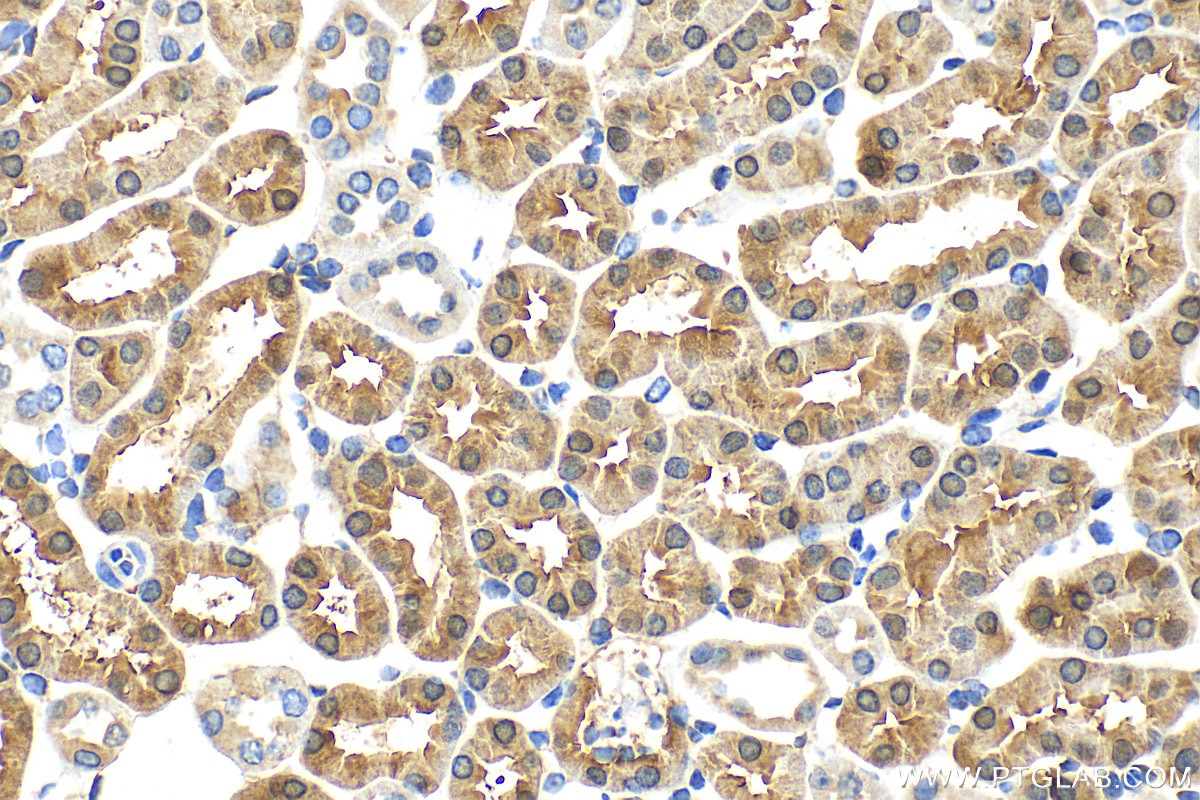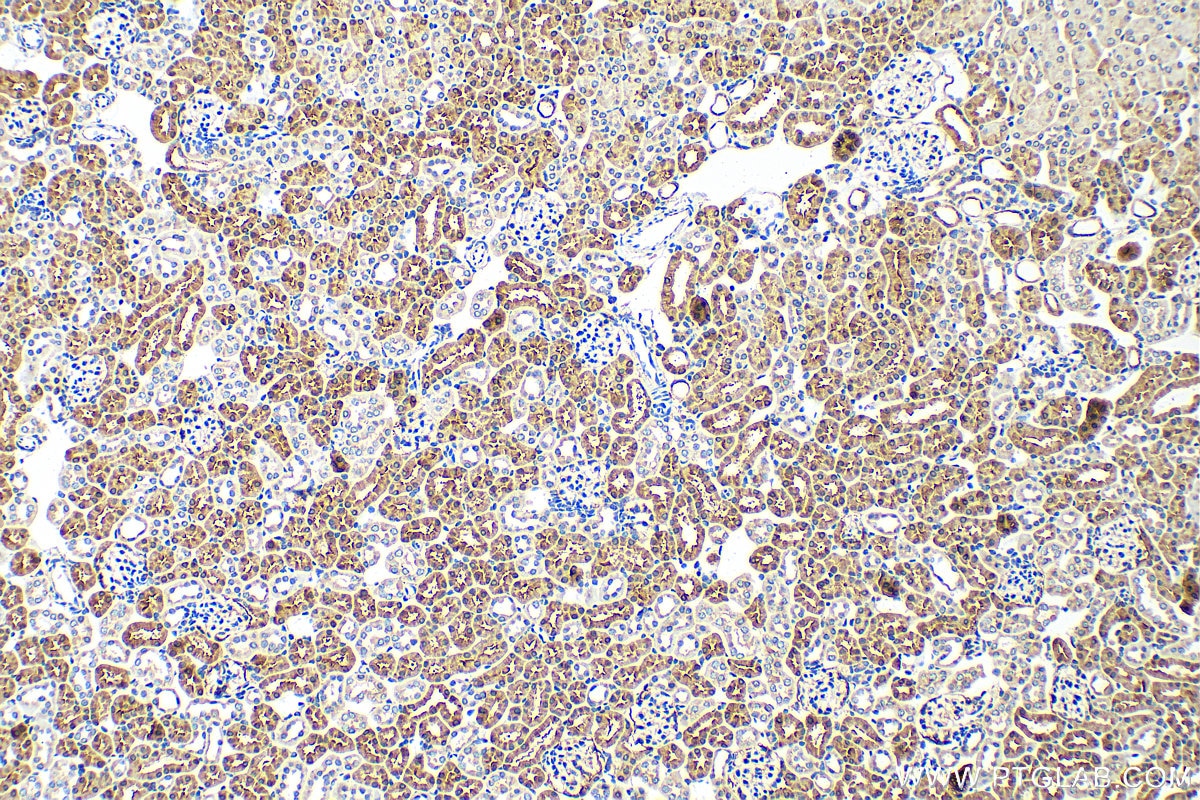ACMSD Polyklonaler Antikörper
ACMSD Polyklonal Antikörper für IHC, ELISA
Wirt / Isotyp
Kaninchen / IgG
Getestete Reaktivität
human, Maus
Anwendung
IHC, ELISA
Konjugation
Unkonjugiert
Kat-Nr. : 26834-1-AP
Synonyme
Geprüfte Anwendungen
| Erfolgreiche Detektion in IHC | Mausnierengewebe Hinweis: Antigendemaskierung mit TE-Puffer pH 9,0 empfohlen. (*) Wahlweise kann die Antigendemaskierung auch mit Citratpuffer pH 6,0 erfolgen. |
Empfohlene Verdünnung
| Anwendung | Verdünnung |
|---|---|
| Immunhistochemie (IHC) | IHC : 1:50-1:500 |
| It is recommended that this reagent should be titrated in each testing system to obtain optimal results. | |
| Sample-dependent, check data in validation data gallery | |
Produktinformation
26834-1-AP bindet in IHC, ELISA ACMSD und zeigt Reaktivität mit human, Maus
| Getestete Reaktivität | human, Maus |
| Wirt / Isotyp | Kaninchen / IgG |
| Klonalität | Polyklonal |
| Typ | Antikörper |
| Immunogen | ACMSD fusion protein Ag25230 |
| Vollständiger Name | aminocarboxymuconate semialdehyde decarboxylase |
| Berechnetes Molekulargewicht | 38 kDa |
| GenBank-Zugangsnummer | BC016018 |
| Gene symbol | ACMSD |
| Gene ID (NCBI) | 130013 |
| Konjugation | Unkonjugiert |
| Form | Liquid |
| Reinigungsmethode | Antigen-Affinitätsreinigung |
| Lagerungspuffer | PBS with 0.02% sodium azide and 50% glycerol |
| Lagerungsbedingungen | Bei -20°C lagern. Nach dem Versand ein Jahr lang stabil Aliquotieren ist bei -20oC Lagerung nicht notwendig. 20ul Größen enthalten 0,1% BSA. |
Hintergrundinformationen
ACMSD (alpha-amino-beta-carboxy-muconate-semialdehyde decarboxylase ) is the key enzyme that regulates the de novo NAD+ synthesis from tryptophan. ACMSD is highly expressed in the liver, kidney and to a lower degree in brain under physiological conditions. The enzyme is primarily cytosolic and is positioned at a critical branching point in the kynurenine pathway, wherein it influences the fate of the precursor 2-amino-3-carboxymuconic-6-semialdehyde (ACMS).
Protokolle
| PRODUKTSPEZIFISCHE PROTOKOLLE | |
|---|---|
| IHC protocol for ACMSD antibody 26834-1-AP | Protokoll herunterladenl |
| STANDARD-PROTOKOLLE | |
|---|---|
| Klicken Sie hier, um unsere Standardprotokolle anzuzeigen |



